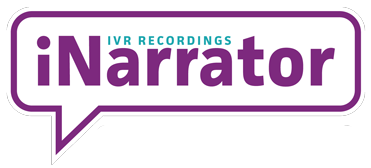‘Your call is very important to us…’
‘Is it? Really? I’m pretty sure if it was that important to you, you’d answer it now’, she sighs and mutters under her breath whilst listening to yet another impersonal, mildly patronising on hold message for the zillionth time this week.
So what is it that irritates us so much about being on hold or sometimes seemingly lost in the depths of an IVR system? These messages sublimate – and quite often infuriate – us, and all because they are missing one vital trick: empathy.
Empathy is not the same as sympathy – nobody ‘holding the line’ or waiting to hear what feels like an endless list of options needs sympathy. But a little empathy goes a long way.
Empathy, in dictionary definition terms, ‘is the ability to understand and share the feelings of another’; the requirement for this from either a system of messages, or from a call handler, is self-explanatory really; know who you’re talking to, and gauge the messages or conversation accordingly.
Pre-recorded messages can only go so far to creating an empathetic tone; because of their nature they are not tailored to each individual caller, they have to ‘cover all bases’. But if you’re operating a call centre, having empathetic call handlers could just be your key to success. Your call handlers are talking to your customers in real-time, and if they have received comprehensive training, should be able to tailor the art of their conversation to correctly match the nature of the call.
If you really want your callers to believe their call is important to you, all you need is some investment in training and understanding how to convey empathy; often the opening few seconds after a call is answered are the most vital – get the callers’ back up, and you’ve lost them.
Empathy Statements
Take, for example, the following three statements:
‘A member of our team will look into this for you’
‘I will ask a member of the team to look into this for you as soon as possible’
‘I will look into this for you today and let you know the outcome’
Adding that personal touch makes a huge difference; the first statement is completely anonymous, conveying the message that someone somewhere might get around to looking into the problem at some point – it doesn’t give a huge amount of faith to your customer that the issue will ever be resolved.
The second statement adds a little bit of a personal touch with ‘I’, however there is no immediacy in what’s being said – the ball is just getting passed into someone else’s court.
However the third statement has a personal guarantee that your call handler will be addressing the issue themselves, whether this be immediately whilst the caller is on the line, or as soon as the call has ended, and they will re-contact the caller with their findings.
The caller will feel at ease that their issue (however trivial it may seem to your company) is resolved by the actual human being they are speaking to, and will be resolved as soon as possible.
Think about the language used by your call handling team, and by the pre-recorded messages you have installed on your phone system…you may well find there is a more empathetic way to operate your company’s phone system.
For any advice, why not give us a call on 0161 850 3033 and we’ll see what we can do to help.






